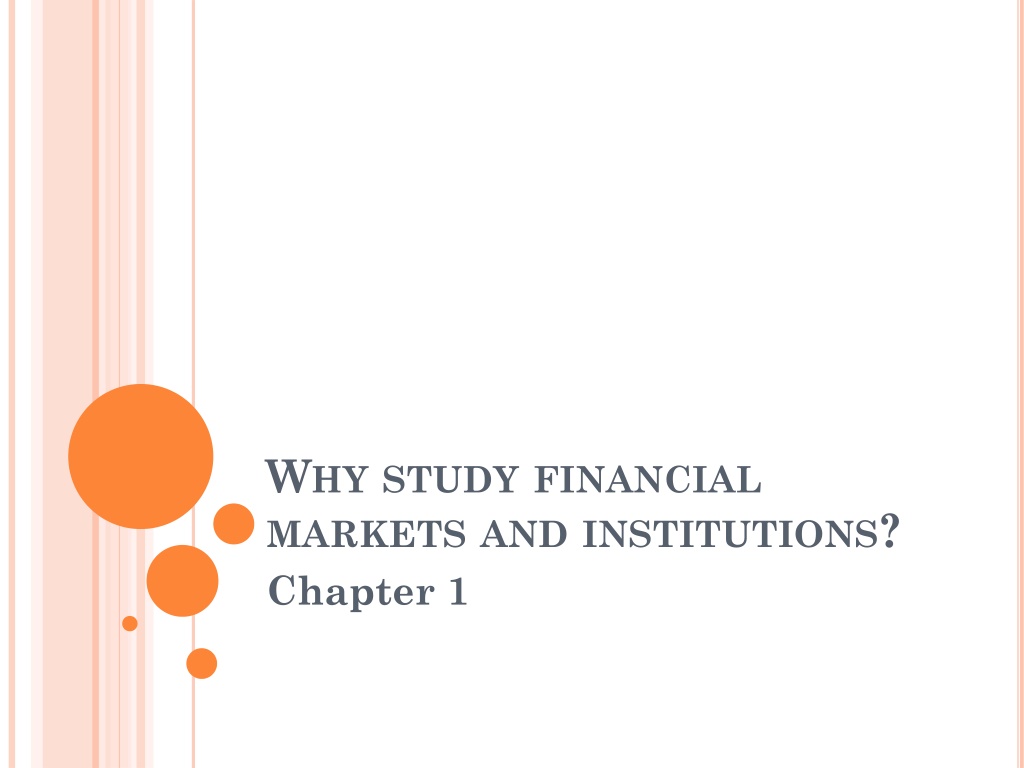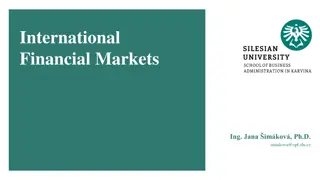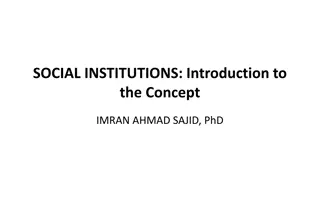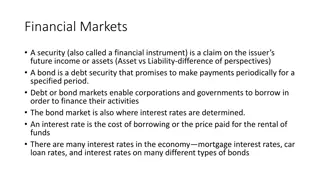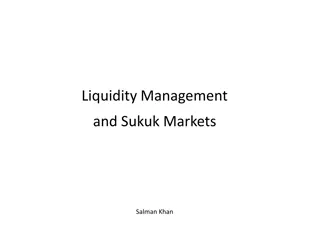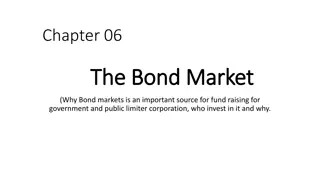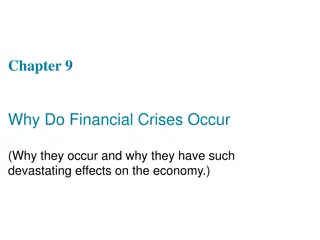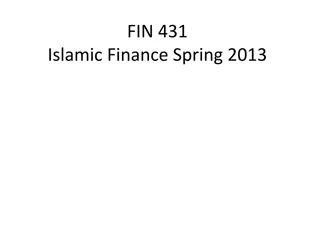Understanding the Significance of Financial Markets and Institutions
Studying financial markets and institutions is crucial as it facilitates the efficient transfer of funds, promotes economic growth, impacts personal wealth, influences business decisions, and plays a significant role in determining interest rates. Debt markets, including bond markets, enable borrowing for various activities, while market interest rates affect individual spending behavior, savings, and business investments. Understanding fluctuations in interest rates is essential for individuals, financial institutions, businesses, and the economy as a whole.
Download Presentation

Please find below an Image/Link to download the presentation.
The content on the website is provided AS IS for your information and personal use only. It may not be sold, licensed, or shared on other websites without obtaining consent from the author. Download presentation by click this link. If you encounter any issues during the download, it is possible that the publisher has removed the file from their server.
E N D
Presentation Transcript
WHY STUDY FINANCIAL MARKETS AND INSTITUTIONS? Chapter 1
FINANCIAL MARKETS Funds are transferred from people with excess funds to those with shortage Promotes greater economic efficiency by providing productive use for funds
FINANCIAL MARKETS Well-functioning markets produce higher economic growth Has effects on personal wealth, behaviour of businesses and consumers Cyclical performance of the economy
SECURITY Also called financial instrument Claim on issuer s future income or assets (any financial claim or piece of property that is subject to ownership)
DEBT MARKETS AND INTEREST RATES Bond is a debt security that promises to make payments periodically for a specified period of time Also known as bond market
DEBT MARKETS AND INTEREST RATES Enable government and corporations to borrow to finance their activities Where interest rates are determined Interest rate is the cost of borrowing or price paid for rental funds
DEBT MARKETS AND INTEREST RATES There are many different types of market interest rates, including mortgage rates, car loan rates, credit card rates, etc. Interest rates are important at different levels
DEBT MARKETS AND INTEREST RATES On personal level, high interest rates deter from spending savings but motivates High businesses investment decisions interest rates might postpone
DEBT MARKETS AND INTEREST RATES Because changes in interest rates have important effects on individuals, financial institutions, businesses economy it is important fluctuations in interest rates and overall explain to
THE STOCK MARKET A common stock represents a share of ownership in a corporation Has claim on the earnings and assets of the corporation In stock market, shares of stock are traded
THE STOCK MARKET Fluctuations in stock prices affect the size of people s wealth willingness to spend and affect their Impact business investment decisions Price of shares affects the amount of funds that can be raised by selling newly issued stock to finance investment spending
THE FOREIGN EXCHANGE MARKET Conversion of one currency into another for moving funds between countries takes place Change in exchange rate affects the cost of imports and revenue from exports
WHY STUDY FINANCIAL MARKETS? Financial markets, such as bond and stock markets, are crucial in our economy. These markets channel funds from savers to investors, thereby promoting economic efficiency. Market activity affects personal wealth, the behavior of business economy as a whole firms, and
WHY STUDY FINANCIAL MARKETS? Well functioning financial markets, such as the bond market, stock market, and foreign exchange market, are key factors in producing high economic growth.
WHY STUDY FINANCIAL INSTITUTIONS? Financial Institutions are the institutions that make financial markets work Financial intermediaries, that take funds from the people who save and lend it to people who have productive opportunities . Institutions are the investment
